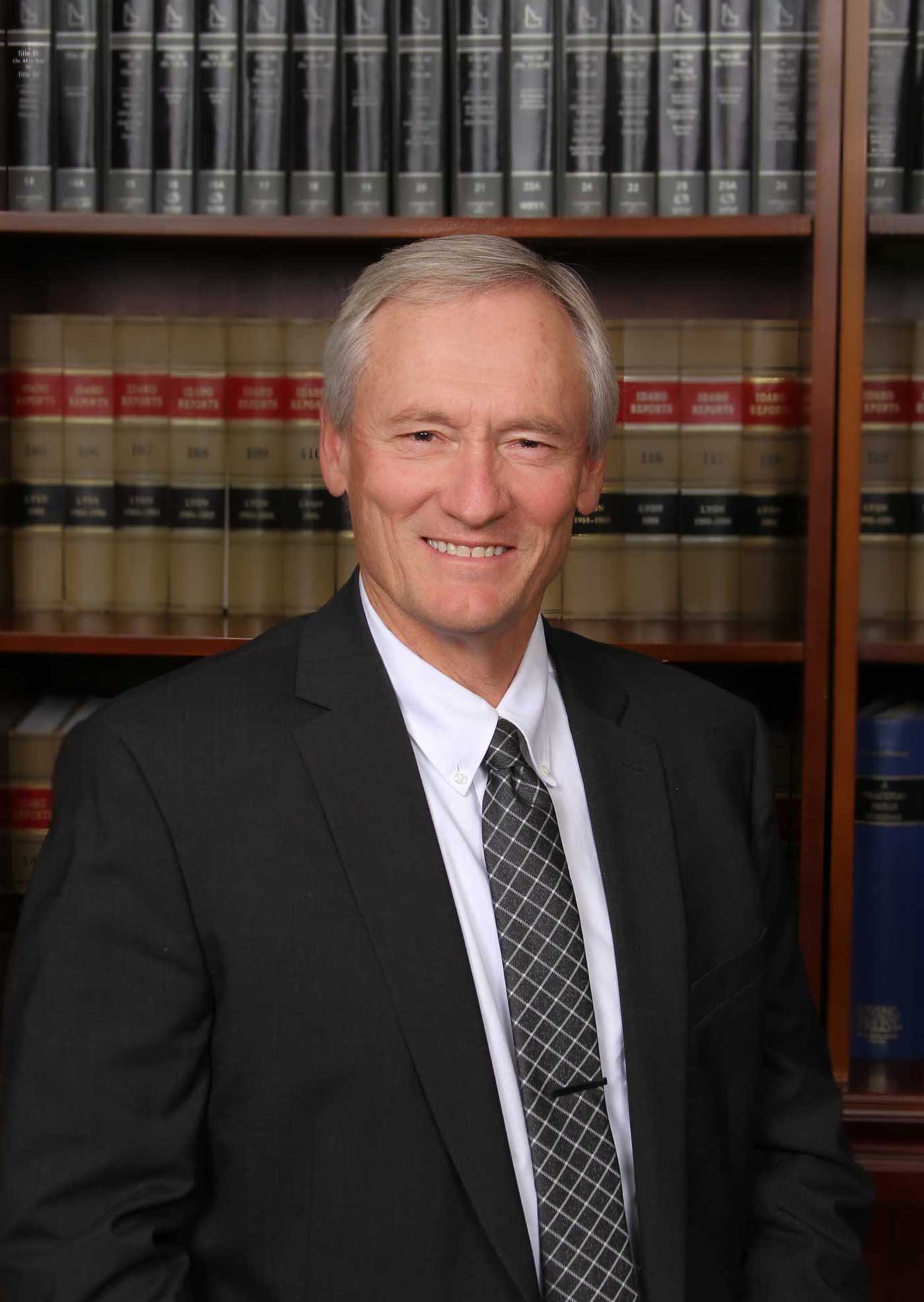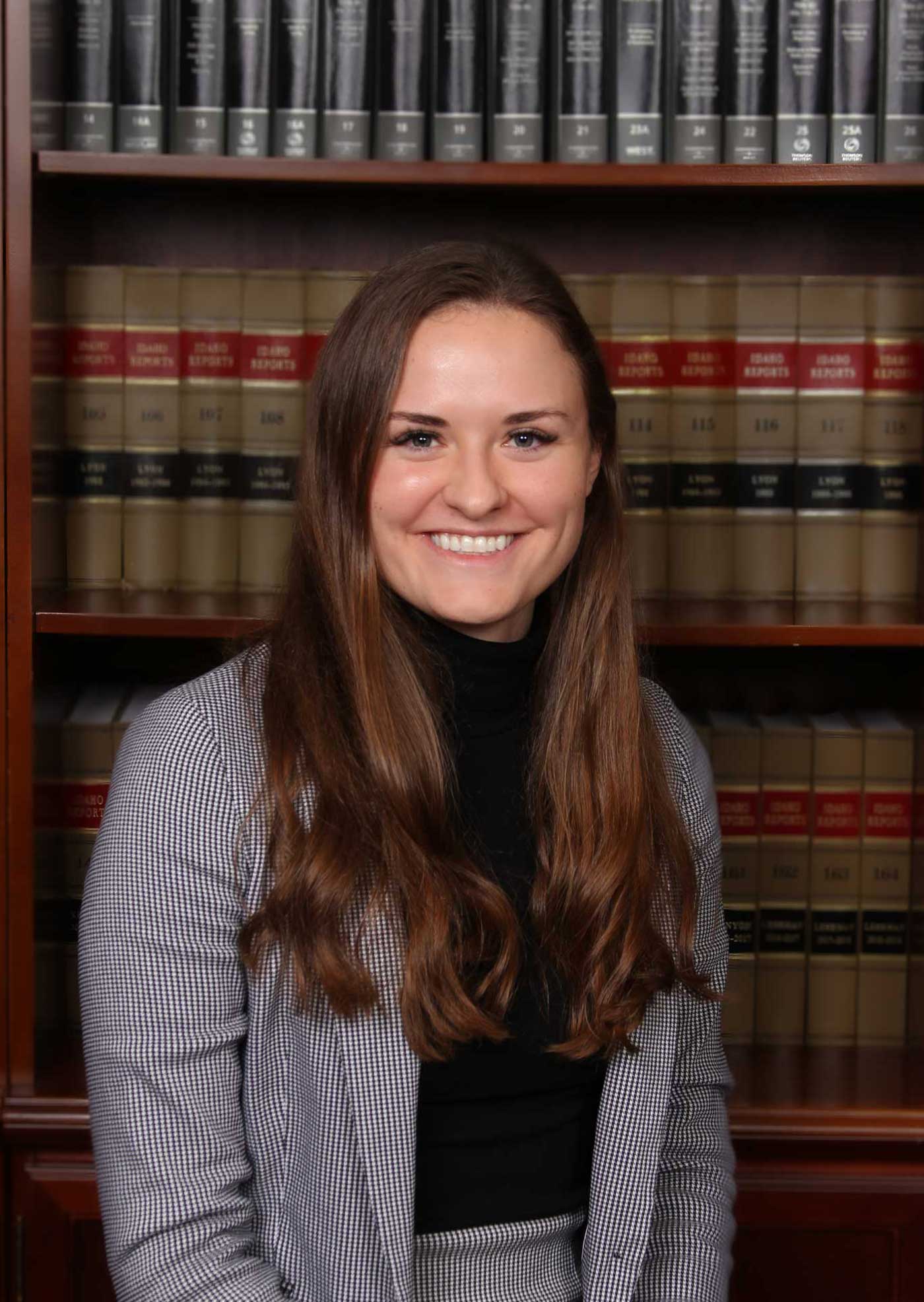Probate
General Probate Information
The probate process is necessary to designate someone who can sign for the deceased person. The fact that you have been “nominated” in the decedent’s will does not make you the personal representative as only the court can make that appointment. Fortunately, the probate process in Idaho is very flexible and has been significantly simplified as compared to many other states. If all of the decedent’s real property is situated in Idaho, then an Idaho probate should be sufficient. However, if the decedent owned real property in another state, an ancillary probate in that other state may be necessary as well. If you have not already done so, you should locate and read the decedent’s will. You should also ensure that an adequate number of death certificates are ordered (usually with the assistance of the mortician).
The Idaho Uniform Probate Code is very flexible and allows for several forms of probate, the most common of which is “Informal” probate. With Informal probate, an Application (along with the decedent’s original will) and Acceptance are typically filed with the court by the person nominated as Personal Representative, and then the court signs and issues (without a formal hearing) a Statement and Letters Testamentary (if the decedent had a will) or Letters of Administration (if the decedent did not have a will). These Letters are the “golden ticket” that give the Personal Representative authority to act for the deceased person. Most of the time, the Informal probate process will be utilized as it is less expensive and quicker.
Idaho also provides for probate through a formal process (with hearings), a small estate affidavit proceeding, a surviving spouse proceeding without the appointment of a personal representative, and a small estate summary proceeding. In addition, when the surviving spouse is the sole beneficiary of the estate of the first spouse to die, then both spouse’s estates may be probated together on the surviving spouse’s death. The exact procedure utilized will depend upon the facts and circumstances of the particular estate, but the flexibility is very convenient.
Note that if the decedent (while living) had an agent under a power of attorney, that agency relationship would normally terminate upon the decedent’s death. After death, it is the court-appointed personal representative who has the authority to act for the decedent.
With rare exceptions, the best rule for administering probate is to be transparent in that administration so that all of the heirs know what is happening and have reasonable time frames and expectations. As Personal Representative, you should extend yourself to make sure information is available.
General Duties
Protection of Assets
Notice to Heirs
Inventory
Notice to Creditors
Our office can prepare a Notice to Creditors for publication in the local newspaper. You should discuss with the estate attorney the advantages and disadvantages of publishing Notice to Creditors. If you decide to publish Notice to Creditors, then the Notice will be published in the local newspaper. In order to be valid as a charge against the assets of the estate, a creditor’s claim must generally be presented within four (4) months after the first publication of Notice to Creditors. Generally, a bill or statement for goods or services will suffice as a legal claim. It is important to note that unless you affirmatively disallow a claim within 60 days after the end of the claim period, you will be deemed to have approved it. Hence you should promptly advise the estate attorney of all bills and other claims received by you if you are unsure as to their validity.
If you elect not to publish notice to creditors, then creditors may file claims for three years after the decedent’s death, and as Personal Representative you may have personal liability if you distributed assets that would have otherwise gone to such creditor.
The United States Supreme Court has ruled that under certain circumstances a known or reasonably ascertainable creditor must be given actual notice (rather than notice by publication) of the need to present a claim before failure to present a claim within a given time period will bar the claim pursuant to state probate law. If you desire to achieve certainty concerning barring known or reasonably ascertainable creditors, you should mail to each known or reasonably ascertainable creditor a notice explaining that they need to present their claims within the statutory time periods or be forever barred. If you desire, our office will prepare and mail these notices if you provide us with the names and addresses of known or reasonably ascertainable creditors.
Accounting
Taxes
If there was sufficient gross income, the Personal Representative is responsible to file the final income tax returns for the decedent, including the period beginning January 1 and ending on the date of the decedent’s death. That final return must be filed and any tax paid on or before April 15 of the year following death.
A federal estate income tax return (IRS Form 1041) for income received by the estate may be required for each year in which the gross income exceeds a certain level. The beginning of the first year is the date of death and may end the last day of any month which you select. An Idaho return (Form 66) for income received by the estate may also be required for each year for which a federal return is filed. If the estate is complicated at all, you would be well served to employ a CPA to assist with any tax reporting issues. Normally you should first consider employing the CPA utilized by the decedent before death as that person will be familiar with any tax issues facing the decedent.
NOTE: WHEN THE FIRST SPOUSE DIES, THERE ARE VERY UNIQUE TAX ISSUES THAT MAY EXIST RELATED TO THE QUESTIONS OF "PORTABILITY".
Final Estate Matters and Closing
After all known debts, administration expenses and taxes have been paid or provided for, a final report or account should be prepared or waived by all the beneficiaries. Depending on the length of the period of administration, it may be advisable to prepare one or more intermediate reports or accounts. Copies of the reports will be given to all persons interested in the estate. From these reports, you should be able to start with the Inventory and see all the transactions that have resulted in the amounts to be distributed out to the estate beneficiaries. If the estate is closed in a formal court proceeding (which is rare), the final report will also be filed with the court.
Normally, distribution of the assets will await the closing of the estate. However, depending on such factors as the size of the estate, the debts, liabilities and expenses of administration of the estate, the needs of the beneficiaries, and the tax considerations involved, earlier partial distributions may be in order.
When the time comes to essentially wrap up the estate, the estate attorney may recommend having a Family Agreement between the Personal Representative and all of the beneficiaries. The purpose of a Family Agreement is to acknowledge the general agreement about the Inventory, the payment of claims and the distribution of assets, and to release the Personal Representative from any further liability or obligation. At that time, you should consult with the estate attorney regarding other possible methods of closing the estate, or perhaps leaving the estate open indefinitely.
Although the Personal Representative has the responsibility to properly administer the estate, you should consult with the estate attorney whenever you have any questions or concerns.
Legal Representation
Non-Probate Transfers
**The information above is general guidance regarding principles of law in Idaho. The foregoing is not intended as legal advice in any particular matter, but may be helpful for you to review before meeting with an estate attorney. Likewise, once you are appointed a personal representative, you should stay in contact with and seek advice from the estate attorney.**
Attorneys

Steven R. Parry

Abigail French
-
AdoptionAdoption
-
Banking & CommercialBanking & Commercial
-
Business & CorporateBusiness & Corporate
-
Collection LawCollection Law
-
Construction & ContractsConstruction & Contracts
-
Creditor BankruptcyCreditor Bankruptcy
-
Custody & SupportCustody & Support
-
EducationEducation
-
EmploymentEmployment
-
Estate PlanningEstate Planning
-
GovernmentGovernment
-
GuardianshipsGuardianships
-
Home Owners AssociationsHome Owners Associations
-
InsuranceInsurance
-
LandlordLandlord
-
LitigationLitigation
-
MediationMediation
-
Personal InjuryPersonal Injury
-
ProbateProbate
-
Real EstateReal Estate
-
TaxTax
-
Wills & TrustsWills & Trusts
-
Worker's CompensationWorker's Compensation
-
AdoptionAdoption
-
Banking & CommercialBanking & Commercial
-
Business & CorporateBusiness & Corporate
-
Collection LawCollection Law
-
Construction & ContractsConstruction & Contracts
-
Creditor BankruptcyCreditor Bankruptcy
-
GuardianshipsGuardianships
-
Home Owners AssociationsHome Owners Associations
-
InsuranceInsurance
-
Landlord & TenantsLandlord & Tenants
-
LitigationLitigation
-
MediationMediation
-
Custody & SupportCustody & Support
-
Divorce & FamilyDivorce & Family
-
EducationEducation
-
EmploymentEmployment
-
Estate PlanningEstate Planning
-
GovernmentGovernment
-
Personal InjuryPersonal Injury
-
ProbateProbate
-
Real EstateReal Estate
-
TaxTax
-
Wills & TrustsWills & Trusts
-
Worker's CompensationWorker's Compensation
